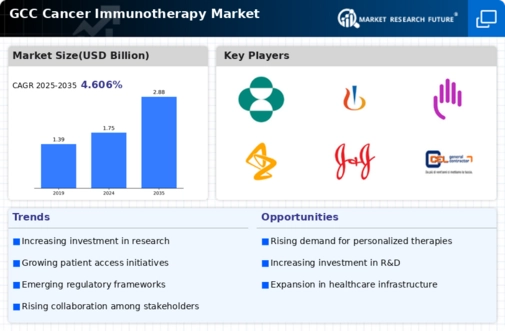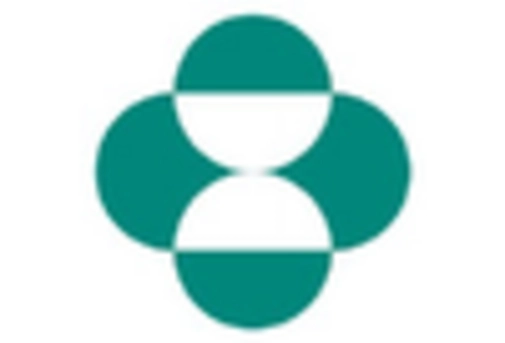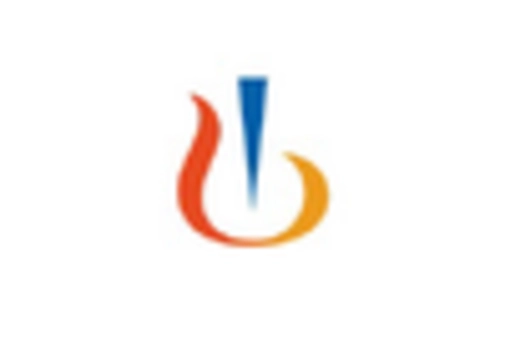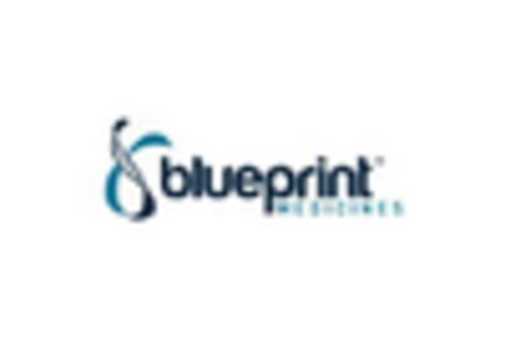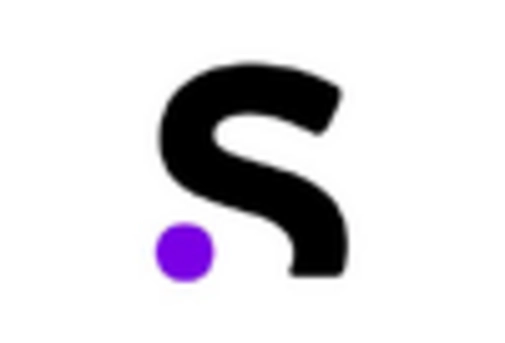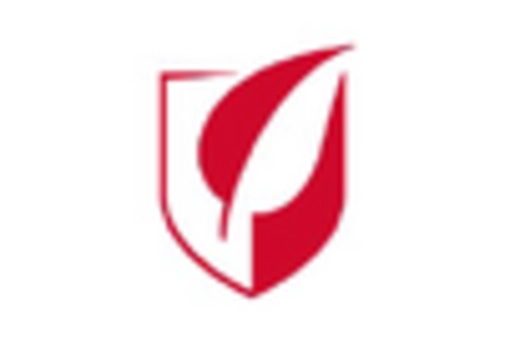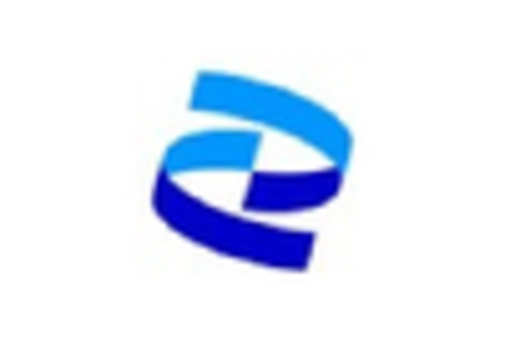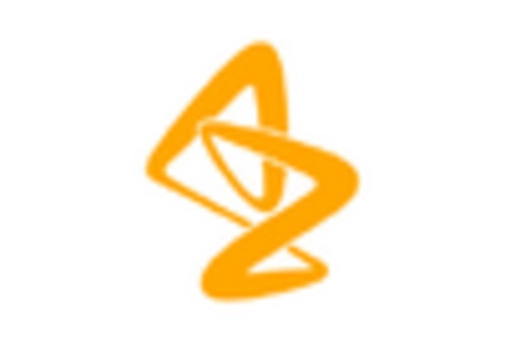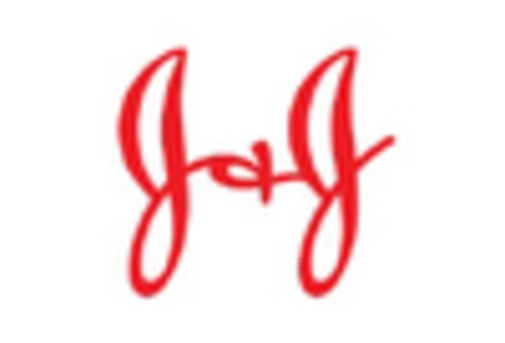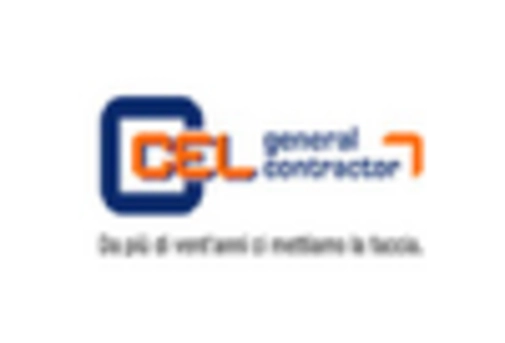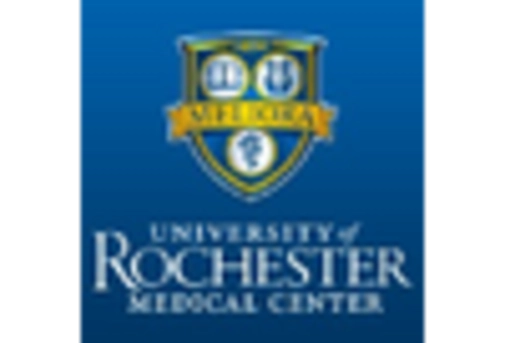GCC Cancer Immunotherapy Market Summary
The GCC Cancer Immunotherapy Market is projected to grow from 1.75 USD billion in 2024 to 2.88 USD billion by 2035.
Key Market Trends & Highlights
GCC Cancer Immunotherapy Market Key Trends and Highlights
- The market is expected to experience a compound annual growth rate (CAGR) of 4.63 percent from 2025 to 2035.
- By 2035, the market valuation is anticipated to reach 2.88 USD billion, indicating robust growth potential.
- In 2024, the market is valued at 1.75 USD billion, reflecting the current investment landscape in cancer immunotherapy.
- Growing adoption of innovative therapies due to increasing cancer prevalence is a major market driver.
Market Size & Forecast
| 2024 Market Size | 1.75 (USD Billion) |
| 2035 Market Size | 2.88 (USD Billion) |
| CAGR (2025-2035) | 4.63% |
Major Players
Merck & Co, Novartis, Seattle Genetics, Bristol Myers Squibb, AstraZeneca, Johnson & Johnson, Regeneron Pharmaceuticals, Celgene, Roche, Amgen, Blueprint Medicines, Sanofi, Gilead Sciences, Pfizer, Eli Lilly and Company


